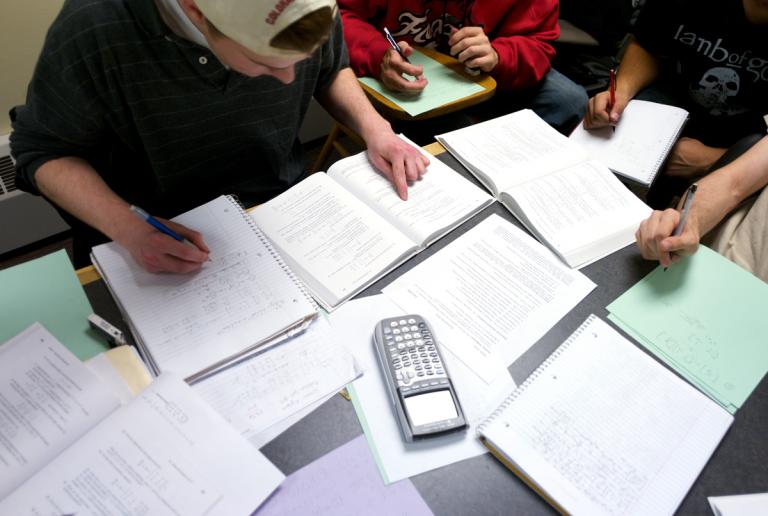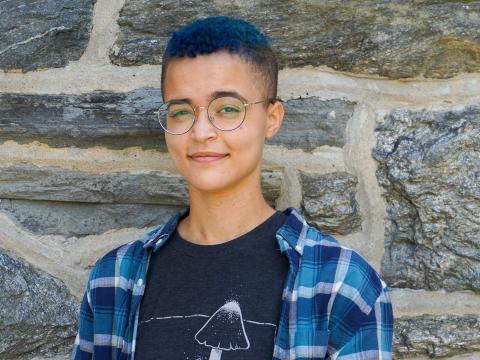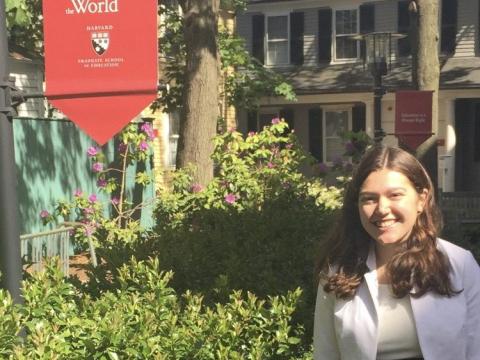
Statistics Minor
Haverford College offers a wide range of courses on statistical theory and applications. Statistics minors take a core sequence in probability and statistics, with later flexibility in pursuing either a more applied or a more theoretical track.
Curriculum & Courses
Math majors and minors can also declare a Statistics minor.
-
Minors Offered by the Department
- Minor: Pure Math
- Minor: Statistics
- Minor: Applied Math
Pure Math Minor Requirements
- Calculus II (MATH H118)
- Multivariable Calculus (MATH H121 or MATH H216)
- Linear Algebra (MATH H215)
- Two of the following courses: Analysis (MATH H317), Algebra (MATH H333), Topology (MATH H335)
- One additional course in pure math (a third course from the previous requirement, or another 200- or 300-level course in pure math)
Statistics Minor Requirements
- Multivariable Calculus (MATH H121 or MATH H216)
- Linear Algebra (MATH H215)
- A course in introductory statistics (STAT H203, ECON H203, ECON H204, PSYC H200, or SOCL H215)
- Probability (MATH H218)
- Advanced Multivariate Statistical Analysis (STAT H361)
- One additional course in statistics from the following list: Mathematical Statistics (STAT H328), Advanced Topics in Statistics (STAT H396), or Advanced Econometrics (ECON H324)
Applied Math Minor Requirements
- Calculus II (MATH H118)
- Multivariable Calculus (MATH H121 or MATH H216)
- Linear Algebra (MATH H215)
- Differential Equations (MATH H204)
- Two additional courses in applied math, of which at least one must be at the 300-level; these two courses should come from the following list (or be approved as a substitution):
- Modeling and Differential Equations (MATH H382)
- Partial Differential Equations (MATH H383)
- Scientific Computing: Continuous Systems (MATH H222)
- Linear Optimization (MATH H210)
- Constrained and Combinatorial Optimization (MATH H384)
- Advanced Topics in Applied Math (MATH H397 and/or (MATH B325); can be taken more than once if topics are sufficiently different)
Policies Related to Minor Requirements
- If a student places past a course listed as required, that requirement is waived, but the student must take an additional course that counts for the minor at the 200-level or higher (excluding Junior or Senior Seminar, Senior Research, Teaching Assistant, Independent Study). For example, a student placed past MATH 118 would need to take 1 additional course; a student placed past MATH 121 would need to take 2 additional courses; a statistics minor placed past STAT 203 would need to take an additional course along with any additional courses implied by their calculus placement.
- A pure math minor cannot be combined with a math major (focus in pure math) or with a math major (focus in applied math).
- An applied math minor cannot be combined with a math major (focus in pure math) or with a math major (focus in applied math).
- A statistics minor cannot be combined with a math major (focus in statistics).
- Other than the case discussed in the previous bullet point, a minor in our department can be combined with a major, minor, or concentration (inside or outside of our department) as long as three or fewer courses are “double-counted”. For example:
- A student could complete a “Minor in statistics” and a “Concentration in Mathematical Economics” (as an economics major) if they use MATH 215, 216, and 218 to fulfill minor and concentration requirements, and then have no overlap in the courses they use to satisfy the remaining requirements.
- A student who places past MATH 118 would replace the MATH 118 major requirement by an additional 200-level course of their choosing (as per a major requirement policy above). Such a student could complete a "Major in Math (with focus in applied math)" and a "Minor in statistics" if they use MATH 121 and 215 to satisfy requirements for both the major and the minor, and MATH 218 to satisfy a minor requirement and as their “additional course” (replacing 118) for the major, and then have no overlap in the courses they use to satisfy the remaining requirements.
For further information about the statistics minor, please see the PDF supplement on the mathematics website, or contact the minor coordinator.
Associated Programs and Concentrations
Research & Outreach

The aspiring scientist will leverage her scholarship to uncover innovative ways to diagnose schizophrenia.

The math and computer science double major explored the applications of finite fields in cryptography.

Wildfires, flooding and differential equations are at the heart of Sam Silverman’s math thesis.

The mathematics major combined her interest in statistics and political economy to examine models of Chinese currency’s exchange rates.

The mathematics major and economics minor used her thesis to model the spread of COVID-19 in prisons and discuss ethics in mathematical research.

The mathematics and biology double major's thesis included built tools to explore the effects of starvation on bacteria and infection.
After Graduation

An economics and mathematics major with a minor in philosophy, Graham is a Research Assistant at the Brookings Institution Center on Health Policy, under its Economics Studies program.

The psychology major, with minors in neuroscience and statistics, is pursuing a Ph.D. in neuroscience at the University of Texas at Austin.

The physics major is moving to London to further his career in real estate financing.

Steliotes will continue her academic journey at the Harvard Graduate School of Education and pursue her dream of becoming a math teacher.

Breimyer is Director of Software Engineering at Audible, an Amazon company.

Heaton is a staff engineer with Walker & Company Brands, and contributes to and manages a software development team within a company that solves health and beauty problems for people of color.

Fitzharris works as a product manager for AppNexus, a advertisement technology platform.
Keep Exploring
More Programs
Check out our other academic offerings:
Get in Touch
Join the Mailing List or search for events in your area.
You can find detailed instructions and information on the Application Instructions page. If you need to contact us directly, please send an email to admission@haverford.edu.
Get Social with Haverford